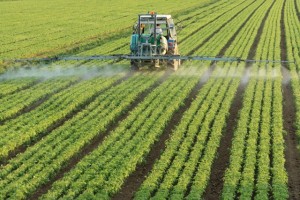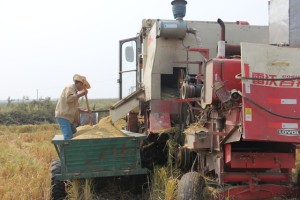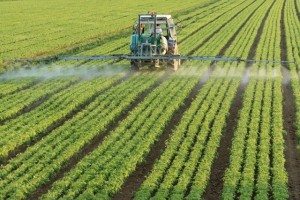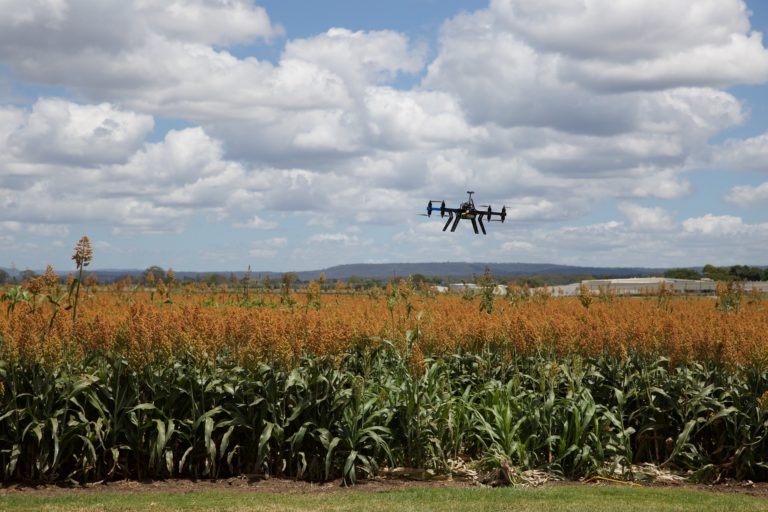 Being the most populous country in the world, China has a lot of mouths to feed. However, having only 9% of the world’s arable land, China is having difficulty ensuring there is enough produce for its 1.35 billion citizens. As such, China recently started importing corn and other crops from foreign countries after years of a foreign crops import ban. In fact, China has raised 500,000 tons to 3.0 million due to persistent demand for premium quality milling wheat.. Because of rising demand and insufficient supply, food prices in China for the last few years keep rising, the main cause of recent consumer inflation. The key to achieving the same success as nations such as China is to have all of these factors operate in a coordinated manner, as they are mutually reinforcing. Therefore, it is not a surprise that the Chinese government is promoting agricultural technology advances to reduce foreign crops import and lessen consumer inflation, thereby creating a sustainable agricultural industry in China. This article is describing the background of the Chinese agricultural technology.
Being the most populous country in the world, China has a lot of mouths to feed. However, having only 9% of the world’s arable land, China is having difficulty ensuring there is enough produce for its 1.35 billion citizens. As such, China recently started importing corn and other crops from foreign countries after years of a foreign crops import ban. In fact, China has raised 500,000 tons to 3.0 million due to persistent demand for premium quality milling wheat.. Because of rising demand and insufficient supply, food prices in China for the last few years keep rising, the main cause of recent consumer inflation. The key to achieving the same success as nations such as China is to have all of these factors operate in a coordinated manner, as they are mutually reinforcing. Therefore, it is not a surprise that the Chinese government is promoting agricultural technology advances to reduce foreign crops import and lessen consumer inflation, thereby creating a sustainable agricultural industry in China. This article is describing the background of the Chinese agricultural technology.
Government Full Backing for the Chinese Agricultural Technology
The Chinese government’s effort in improving and advancing agricultural technology has long begun. In 2012, the Chinese government publicly encourage the investment in the agricultural sector. In fact, the government is providing numerous subsidy and financial support to companies and farms that belong to the agricultural technology industry, at least $3 billion to institutes that are developing bioengineered seeds alone. The focus was on yield and productivity effectiveness. The government does not only see the importance of research and development, but also the implementation of those technologies as well as production and distribution channels throughout the country. They also incentivize venture capital and banks to offer loans to the agriculture sector by giving them a tax cut and reduction. Since the country’s government sees the agricultural technology as the solution to the rising food prices, they give concentrated effort in promoting the industry in China.
Nuclear Technology and GMO Gains Popularity
 The Chinese farmers and scientists start using biotechnology to engineer seeds both with nuclear technology and GMO in an attempt to increase yield and efficiency. By using the nuclear technology to irradiate seeds, Chinese farmers can have new breeds of crops with the desired characteristics. Farmers expose seeds to low doses of gamma rays from cobalt-60 to change the seed’s genetic makeup. It requires about five years to produce a stable genetic attribute as a new breed of seeds. On the contrary, the cross-breeding method, although more popular, requires about eight years to generate a new breed. In addition, many seeds that are exposed to gamma rays are insect resistant and more durable than those seeds that not. Therefore because of its ability to save time and its durability, the nuclear technology is gaining popularities as an alternative to the cross-breeding method in producing crops with desired characteristics.
The Chinese farmers and scientists start using biotechnology to engineer seeds both with nuclear technology and GMO in an attempt to increase yield and efficiency. By using the nuclear technology to irradiate seeds, Chinese farmers can have new breeds of crops with the desired characteristics. Farmers expose seeds to low doses of gamma rays from cobalt-60 to change the seed’s genetic makeup. It requires about five years to produce a stable genetic attribute as a new breed of seeds. On the contrary, the cross-breeding method, although more popular, requires about eight years to generate a new breed. In addition, many seeds that are exposed to gamma rays are insect resistant and more durable than those seeds that not. Therefore because of its ability to save time and its durability, the nuclear technology is gaining popularities as an alternative to the cross-breeding method in producing crops with desired characteristics.
For the past few years, the Chinese government is encouraging the development of GMO domestically. Although the ban on production and development of GMO by foreign firms are still implemented in China, the Chinese government is funding Chinese firms to develop bioengineered seeds. Chinese top officials expect GMO to be allowed in the market for the next three years but with strict supervision and labeling. GMO, like nuclear technology, is able to increase crop yield and efficiency, therefore, is a viable solution to the insufficient agricultural produce in China.
Technology Firms Entering Agricultural Sector
As of late, there have been many giant technology firms that are entering the agricultural sector in China. NetEase, LeTV, and Lenovo are the few examples of such firms. Because they believe the crucial element to success in the agricultural sector is the logistic and supply chain, these technology firms believe they could win a portion of this pie. However, it is not as easy as it might seem and NetEase is the epitome of the difficulties tech firms might be experiencing. NetEase has been struggling to bring livestock, to the market for four years. NetEase the fault lies in the underestimation of the difficulty of the industry coupled with the overestimation of the firm’s ability. On the other hand, Lenovo sets up Joyvio in 2012 and it became China’s number one producer and distributor of blueberries and kiwi fruits.
The agricultural technology industry in China has been growing leaps and bounds for the past decade, however in order to create a completely sustainable agricultural sector, more advancement and improvement are required. Because biotechnology can remarkably improve yield and efficiency, it is foreseeable that the Chinese government will continue to support the sector.
Daxue’s Expertise
Daxue is using his expertise in the field of agribusiness and large-scale transformations to generate adapted models for sustainable agricultural development in China that can be scaled such as supply-chain management, infrastructure etc. Daxue has helped some companies of the sector to design and implement a suitable strategy in China for valuable projects.
To learn more about the Agribusiness in China, contact us at dx@daxueconsulting.com
And follow us on Twitter to get the latest news.




